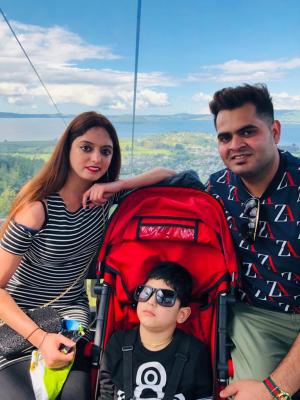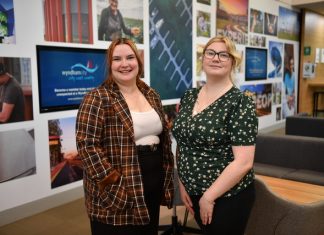By Alesha Capone
Laverton husband and wife Varun and Priyanka Katyal are fighting to remain in Australia for the sake of their six year-old son Kayaan, who has cerebral palsy.
Mr and Mrs Katyal, who have been in Australia on temporary visas for 12 and eight years respectively, were in the midst of applying for permanent residency when they received a devastating letter from the Department of Home Affairs (DHA) in February.
The letter said the couple could not remain in Australia because of Kayaan’s illness.
The document said that caring for Kayaan, who was born in Australia, would cost taxpayers an estimated $1.2 million across the next decade – which was labelled “a significant, undue cost to the Australian community in the areas of health care and/or community services”.
Mr and Mrs Katyal are pleading with federal authorities to let them remain here.
They have launched a Change.org petition asking the federal government and DHA to show compassion towards Kayaan.
The petition has attracted more than 117,000 signatures of support.
Mr Katyal – who came from India to Australia at the age of 19 to study cooking and has worked as a chef since graduating – said Kayaan’s illness was the sole reason given by the DHA for refusing them residency.
He said Kayaan usually only visits hospital once every three to six months, for speech and occupational therapy.
“They (the federal government and DHA) are just not treating my son in an equal way – they are only seeing him as a cost,” Mr Katyal said.
The family has spent more than $40,000 on legal and immigration fees to challenge the DHA decision.
They have appealed the decision to the Administrative Appeals Tribunal, although a verdict might not be issued for up to three years.
Mr Katyal said the DHA’s decision has had “a very bad impact” on his family, and that the money would have been better spent on Kayaan.
He said Kayaan, who attends Warringa Park School in Hoppers Crossing, would have a better future if he was able to grow up in Australia, rather than India.
“I don’t know how the system works in India and what job I’d be able to get there,” Mr Katyal said.
“After living here for 12 years, I don’t know if my wages would cover his medical costs or allow him to go to hospital (in India).”
Kayaan’s doctor, Barry Rawicki from the Monash Children’s Hospital, told the ABC that Kayaan would likely be “much worse” in India if his parents could not afford to pay for medical care there.
A DHA spokesperson said that the department did not comment on individual cases.
“The current migration health framework is pragmatic and balances compassion and cost containment by imposing a standard health requirement for visa applicants, while making health waivers available for some visa sub-classes,” the spokesperson said.








